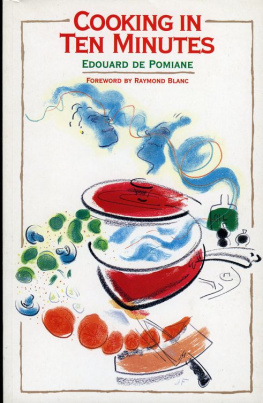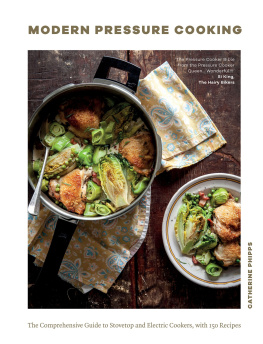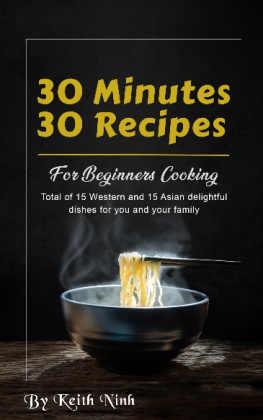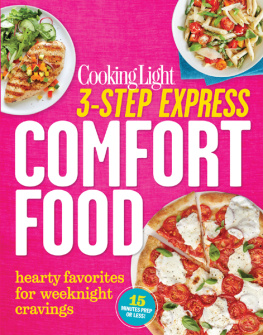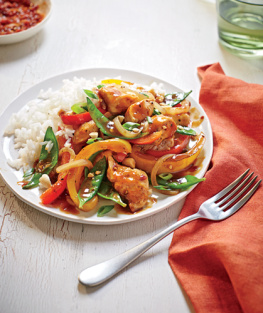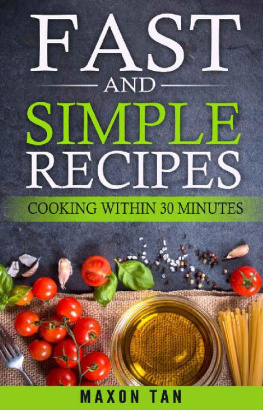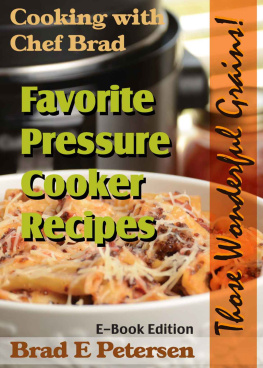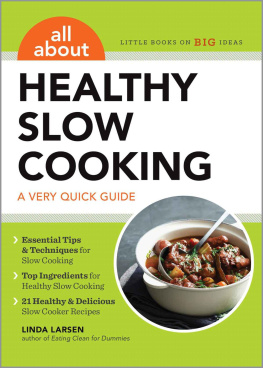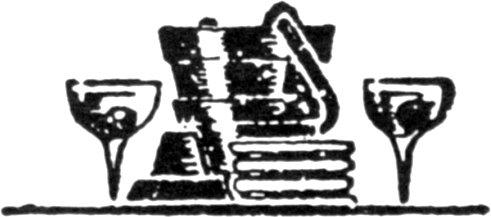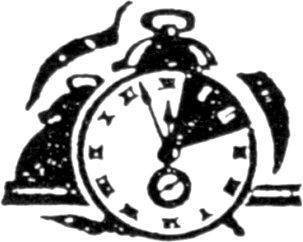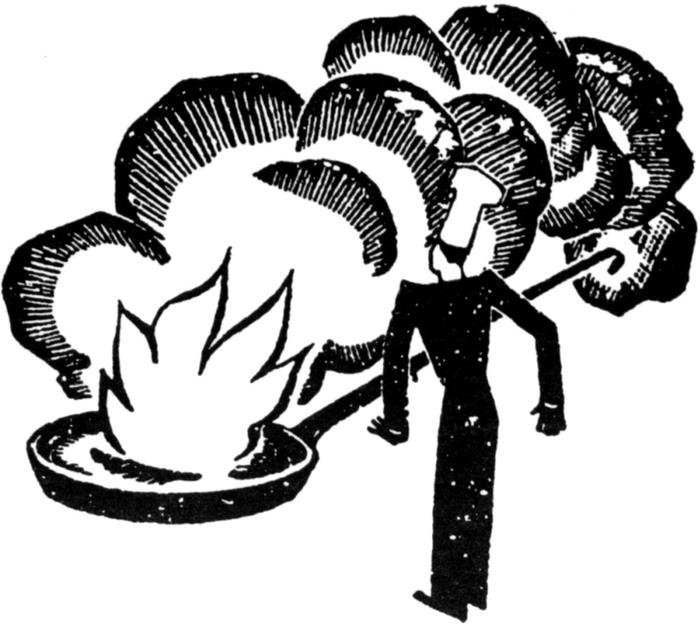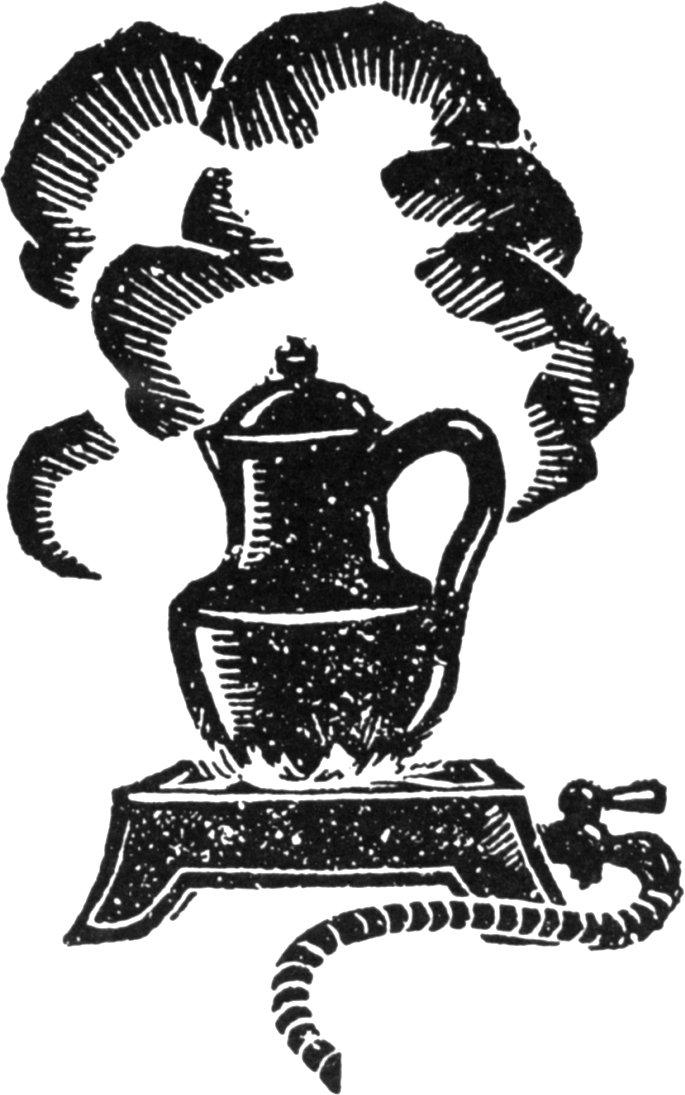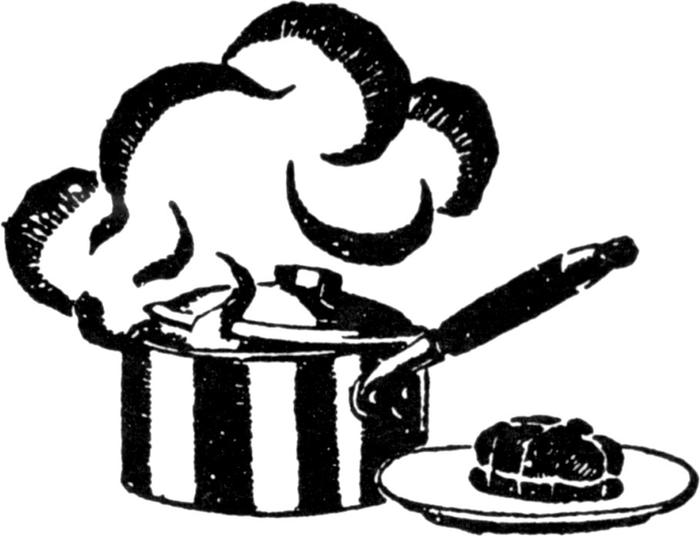Pomiane is my hero. He was not a chef but a highly renowned scientist at the Institut Pasteur in Paris, an expert in nutrition and the medical values of food. A man of knowledge.
If all this seems rather formal and daunting, I can assure you the man himself was not, quite the contrary.
At first sight, I liked him; he bore a quite uncanny resemblance to an old gentleman that I used to worship and love as a child: the same big drooping moustache, the same very odd bump on his head and, above all, the most piercing, lovely and mischievous pair of eyes always ready to laugh at life.
You have guessed it, my dear old professor is a very special person he has a very high opinion of himself and loves himself quite unashamedly, but equally wants to stir others to discover this wonderful self-love which engenders more love for one another. His chosen medium is cooking. He is one of the first people to have queried the establishment, the static traditions and the taboos of French cuisine. He wanted to make cooking accessible, demystify it and especially to associate it with an act of love and giving.
He does not lecture, he tells you with great warmth, fluency, and the most delightful sense of humour how to deal with all manner of culinary questions. All this spiced with a great deal of common sense. I found his thoughts and books irresistible, funny, sometimes hilarious, always objective and to the point.
This little book will make you happy, will invite you to meet a well balanced, loving and happy spirit.
RaymondBlanc
I am neither a fool nor a micromaniac. (A micromaniac is the opposite to a megalomaniac and means someone with a passion for exiguity. This word, by the way, is not to be found in the dictionary.) And yet the day my book CookinginSixLessons appeared I was called frivolous. I was criticised for teaching the art of cooking in six lessons when everyone knows it takes ten years to become a cook. I replied to this criticism in a preface showing the part that science can play in the rhythm and measure of teaching my art, including cookery. I tried to show that I had a feeling for speed and that I didnt simply disregard the question of time.
Now I maintain that one can prepare a meal in ten minutes, and as this is an incredibly short time I shall be treated as a micromaniac.
I shall not try to explain or defend myself. I shall try to convince you by describing all the dishes that can be prepared in ten minutes, only, of course, in towns where the necessary materials can be obtained. If you have to catch your fish in a limpid stream before preparing it then you will need more than ten minutes, even if you devour it raw, sprinkled with salt.
My book is meant for the student, for the midinette, for the clerk, for the artist, for lazy people, poets, men of action, dreamers and scientists, for everyone who has only an hour for lunch or dinner and yet wants half an hour of peace to watch the smoke of a cigarette whilst they sip a cup of coffee which has not even time to get cold.
Modern life spoils so much that is pleasant. Let us see that it does not make us spoil our steak or our omelette. Ten minutes are sufficient one minute more and all would be lost.
EdouarddePomiane
First of all I must tell you that this is a lovely book, because I have only got as far as the first page. I have just sat down to write. I am happy, with the happiness of beginning a fresh task.
My fountain pen is full of ink; I have fresh sheets of paper before me. I love my book because I am writing it for you. I feel that I need only let my pen run on and I shall make myself clear. And my ideas move more quickly still.
My book will only be ten pages long It will seem absurd and above all, incomprehensible.
As deliberation is in the very nature of science, I shall turn to it for calm and tell you everything you ought to know before beginning ten-minute cooking, even if you only want to boil an egg, which is done in two and a half minutes.
The moment you come into the kitchen light the gas. Ten-minute cookery is impossible without gas.
Put a large saucepan of water on to the fire. Slip on the lid and let it boil.
What is the use of this water, you will ask? I dont know. But it is bound to be useful, either for cooking or washing up or making coffee.
If you are going to fry something dont wait to take off your hat before putting the pan on the fire.
The time during which the fat melts and reaches the proper temperature does not count in the preparation of our meal.
The fire is busy. Now turn your attention to cooking.
There are four different ways of using heat for cooking: (1) boiling, or cooking in water; (2) cooking in fat or frying; (3) cooking on an open flame (grilling); (4) steaming.
In our case, that is to say when time is short, steaming is almost out of the question. It is a long, slow business and best avoided by people in a hurry.
We will keep to the first three ways of cooking.
B OILING
If you want to cook quickly by this method, begin by plunging the food into boiling salted water. Now this is waiting on the fire.
As time is limited you can, of course, only boil small pieces of food. In spite of this, it is possible, as you will presently see, to boil a slice of leg of lamb weighing a pound. This is a dish for two people blessed with a good appetite. You can also cook a piece of beef of the same weight tied round with string. This is a most worthy dish.
Do not try to cook vegetables. It is impossible in such a short time. You can, however, prepare pasta or small dumplings.
To sum up: plunge the food into boiling salted water. Cover the pan. As soon as the water boils take the lid off. You will see exactly what is happening in the saucepan and this is essential if you do not want to lose precious seconds.
F RYING
If boiling means cooking in a liquid at a temperature of almost 212 Fahrenheit, deep frying means cooking in a liquid at a temperature of almost 392.
One must therefore first of all heat the fat to a maximum. You will know that the temperature is right when smoke rises from the surface. At this moment put in the food, otherwise the fat decomposes and yields substances which damage the meat, or whatever you are frying, and the food is spoilt.

